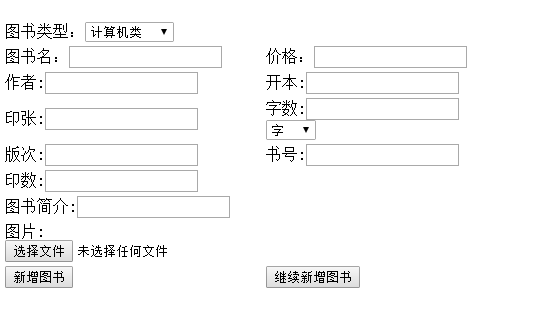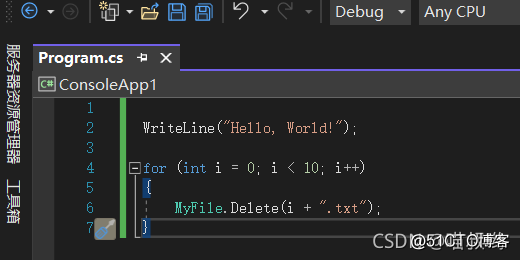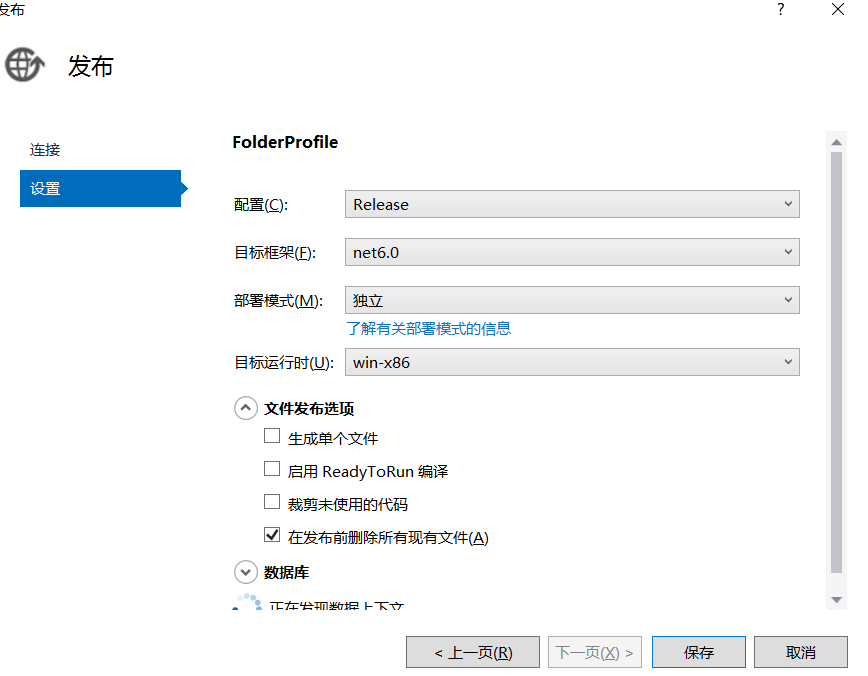一. DescriptionAttribute的普通使用方式
1.1 使用示例
DescriptionAttribute特性可以用到很多地方,比较常见的就是枚举,通过获取枚举上定义的描述信息在UI上显示,一个简单的枚举定义:
public enum EnumGender
{
None,
[System.ComponentModel.Description("男")]
Male,
[System.ComponentModel.Description("女")]
Female,
Other,
}
本文不讨论DescriptionAttribute的其他应用场景,也不关注多语言的实现,只单纯的研究下获取枚举描述信息的方法。
一般比较常见的获取枚举描述信息的方法如下,可以在园子里搜索类似的代码非常多。
public static string GetDescriptionOriginal(this Enum @this)
{
var name = @this.ToString();
var field = @this.GetType().GetField(name);
if (field == null) return name;
var att = System.Attribute.GetCustomAttribute(field, typeof(DescriptionAttribute), false);
return att == null ? field.Name : ((DescriptionAttribute)att).Description;
}
简单测试下:
Console.WriteLine(EnumGender.Female.GetDescriptionOriginal()); Console.WriteLine(EnumGender.Male.GetDescriptionOriginal()); Console.WriteLine(EnumGender.Other.GetDescriptionOriginal()); //输出结果: 女 男 Other
1.2 上面的实现代码的问题
首先要理解特性是什么?
特性:
Attribute特性就是关联了一个目标对象的一段配置信息,存储在dll内的元数据。它本身没什么意义,可以通过反射来获取配置的特性信息。
因此主要问题其实就是反射造成的严重性能问题:
•1.每次调用都会使用反射,效率慢!
•2.每次调用反射都会生成新的DescriptionAttribute对象,哪怕是同一个枚举值。造成内存、GC的极大浪费!
•3.好像不支持位域组合对象!
•4.这个地方的方法参数是Enum,Enum是枚举的基类,他是一个引用类型,而枚举是值类型,该方法会造成装箱,不过这个问题好像是不可避免的。
性能到底有多差呢?代码来实测一下:
[Test]
public void GetDescriptionOriginal_Test()
{
var enums = this.GetTestEnums();
Console.WriteLine(enums.Count);
TestHelper.InvokeAndWriteAll(() =>
{
System.Threading.Tasks.Parallel.For(0, 1000000, (i, obj) =>
{
foreach (var item in enums)
{
var a = item.GetDescriptionOriginal();
}
});
});
}
//输出结果:
80
TimeSpan:79,881.0000ms //共消耗了将近80秒
MemoryUsed:-1,652.7970KB
CollectionCount(0):7,990.00 //0代GC回收了7千多次,因为创建了大量的DescriptionAttribute对象
其中this.GetTestEnums();方法使用获取一个枚举值集合,用于测试的,集合大小80,执行100w次,相当于执行了8000w次GetDescriptionOriginal方法。
TestHelper.InvokeAndWriteAll方法是用来计算执行前后的时间、内存消耗、0代GC回收次数的,文末附录中给出了代码,由于内存回收的原因,内存消耗计算其实不准确的,不过可以参考第三个指标0代GC回收次数。
二. 改进的DescriptionAttribute方法
知道了问题原因,解决就好办了,基本思路就是把获取到的文本值缓存起来,一个枚举值只反射一次,这样性能问题就解决了。
2.1 使用字典缓存+锁
因为使用静态变量字典来缓存值,就涉及到线程安全,需要使用锁(做了双重检测),具体方法:
private static Dictionary<Enum, string> _LockDictionary = new Dictionary<Enum, string>();
public static string GetDescriptionByDictionaryWithLocak(this Enum @this)
{
if (_LockDictionary.ContainsKey(@this)) return _LockDictionary[@this];
Monitor.Enter(_obj);
if (!_LockDictionary.ContainsKey(@this))
{
var value = @this.GetDescriptionOriginal();
_LockDictionary.Add(@this, value);
}
Monitor.Exit(_obj);
return _LockDictionary[@this];
}
来测试一下,测试数据、次数和1.2的GetDescriptionOriginal_Test相同,效率有很大的提升,只有一次内存回收。
[Test]
public void GetDescriptionByDictionaryWithLocak_Test()
{
var enums = this.GetTestEnums();
Console.WriteLine(enums.Count)
TestHelper.InvokeAndWriteAll(() =>
{
System.Threading.Tasks.Parallel.For(0, 1000000, (i, obj) =>
{
foreach (var item in enums)
{
var a = item.GetDescriptionByDictionaryWithLocak();
}
});
});
}
//测试结果:
80
TimeSpan:1,860.0000ms
MemoryUsed:159.2422KB
CollectionCount(0):1.00
2.2 使用字典缓存+异常(不走寻常路的方式)
还是先看看实现方法吧!
private static Dictionary<Enum, string> _ExceptionDictionary = new Dictionary<Enum, string>();
public static string GetDescriptionByDictionaryWithException(this Enum @this)
{
try
{
return _ExceptionDictionary[@this];
}
catch (KeyNotFoundException)
{
Monitor.Enter(_obj);
if (!_ExceptionDictionary.ContainsKey(@this))
{
var value = @this.GetDescriptionOriginal();
_ExceptionDictionary.Add(@this, value);
}
Monitor.Exit(_obj);
return _ExceptionDictionary[@this];
}
}
假设我们的使用场景是这样的:项目定义的枚举并不多,但是用其描述值很频繁,比如定义了一个用户性别枚举,用的地方很多,使用频率很高。
上面GetDescriptionByDictionaryWithLocak的方法中,第一句代码“if (_LockDictionary.ContainsKey(@this)) ”就是验证是否包含枚举值。在2.1的测试中执行了8000w次,其中只有80次(总共只有80个枚举值用于测试)需要这句代码“if (_LockDictionary.ContainsKey(@this)) ”,其余的直接取值就可了。基于这样的考虑,就有了上面的方法GetDescriptionByDictionaryWithException。
来测试一下,看看效果吧!
[Test]
public void GetDescriptionByDictionaryWithException_Test()
{
var enums = this.GetTestEnums();
Console.WriteLine(enums.Count);
TestHelper.InvokeAndWriteAll(() =>
{
System.Threading.Tasks.Parallel.For(0, 1000000, (i, obj) =>
{
foreach (var item in enums)
{
var a = item.GetDescriptionByDictionaryWithException();
}
});
});
}
//测试结果:
80
TimeSpan:1,208.0000ms
MemoryUsed:230.9453KB
CollectionCount(0):1.00
测试结果来看,基本上差不多,在时间上略微快乐一点点,1,208.0000ms:1,860.0000ms,执行8000w次快600毫秒,好像差别也不大啊,这是为什么呢?
这个其实就是Dictionary的问题了,Dictionary内部使用散列算法计算存储地址,其查找的时间复杂度为o(1),他的查找效果是非常快的,而本方法中利用了异常处理,异常捕获本身是有一定性能影响的。
2.3 推荐简单方案:ConcurrentDictionary
ConcurrentDictionary是一个线程安全的字典类,代码:
private static ConcurrentDictionary<Enum, string> _ConcurrentDictionary = new ConcurrentDictionary<Enum, string>();
public static string GetDescriptionByConcurrentDictionary(this Enum @this)
{
return _ConcurrentDictionary.GetOrAdd(@this, (key) =>
{
var type = key.GetType();
var field = type.GetField(key.ToString());
return field == null ? key.ToString() : GetDescription(field);
});
}
测试代码及测试结果:
[Test]
public void GetDescriptionByConcurrentDictionary_Test()
{
var enums = this.GetTestEnums();
Console.WriteLine(enums.Count);
TestHelper.InvokeAndWriteAll(() =>
{
System.Threading.Tasks.Parallel.For(0, 1000000, (i, obj) =>
{
foreach (var item in enums)
{
var a = item.GetDescriptionByConcurrentDictionary();
}
});
});
}
//测试结果:
80
TimeSpan:1,303.0000ms
MemoryUsed:198.0859KB
CollectionCount(0):1.00
2.4 正式的代码
综上所述,解决了性能问题、位域枚举问题的正式的代码:
/// <summary>
/// 获取枚举的描述信息(Descripion)。
/// 支持位域,如果是位域组合值,多个按分隔符组合。
/// </summary>
public static string GetDescription(this Enum @this)
{
return _ConcurrentDictionary.GetOrAdd(@this, (key) =>
{
var type = key.GetType();
var field = type.GetField(key.ToString());
//如果field为null则应该是组合位域值,
return field == null ? key.GetDescriptions() : GetDescription(field);
});
}
/// <summary>
/// 获取位域枚举的描述,多个按分隔符组合
/// </summary>
public static string GetDescriptions(this Enum @this, string separator = ",")
{
var names = @this.ToString().Split(',');
string[] res = new string[names.Length];
var type = @this.GetType();
for (int i = 0; i < names.Length; i++)
{
var field = type.GetField(names[i].Trim());
if (field == null) continue;
res[i] = GetDescription(field);
}
return string.Join(separator, res);
}
private static string GetDescription(FieldInfo field)
{
var att = System.Attribute.GetCustomAttribute(field, typeof(DescriptionAttribute), false);
return att == null ? field.Name : ((DescriptionAttribute)att).Description;
}
ps:.NET获取枚举值的描述
一、给枚举值定义描述的方式
public enum TimeOfDay
{
[Description("早晨")]
Moning = 1,
[Description("下午")]
Afternoon = 2,
[Description("晚上")]
Evening = 3,
}
二、获取枚举值的描述的方法
public static string GetDescriptionFromEnumValue(Type enumType, object enumValue)
{
try
{
object o = Enum.Parse(enumType, enumValue.ToString());
string name = o.ToString();
DescriptionAttribute[] customAttributes = (DescriptionAttribute[])enumType.GetField(name).GetCustomAttributes(typeof(DescriptionAttribute), false);
if ((customAttributes != null) && (customAttributes.Length == 1))
{
return customAttributes[0].Description;
}
return name;
}
catch
{
return "未知";
}
}
三、获取枚举值的描述的方法的使用
string strMoning = GetDescriptionFromEnumValue( typeof (TimeOfDay) , 2 );
到此这篇关于.NET获取枚举DescriptionAttribute描述信息性能改进的多种方法就介绍到这了。青春如此短暂,还未来得及好好珍惜,就已过去了大半。更多相关.NET获取枚举DescriptionAttribute描述信息性能改进的多种方法内容请查看相关栏目,小编编辑不易,再次感谢大家的支持!





